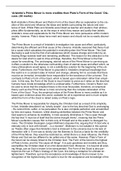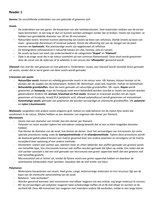Essay
Aristotle's Prime Mover is more credible than Plato's Form of the Good - Discuss.
- Course
- Institution
An A** 40-mark A-Level Philosophy essay comparing Aristotle's Prime Mover with Plato's Form of the Good. From the Ancient Philosophical / Greek Influences topic within the OCR RS curriculum. Written by an A-Level student who achieved an A* in A-Level Religious Studies (a.k.a Philosophy and Ethics)...
[Show more]












